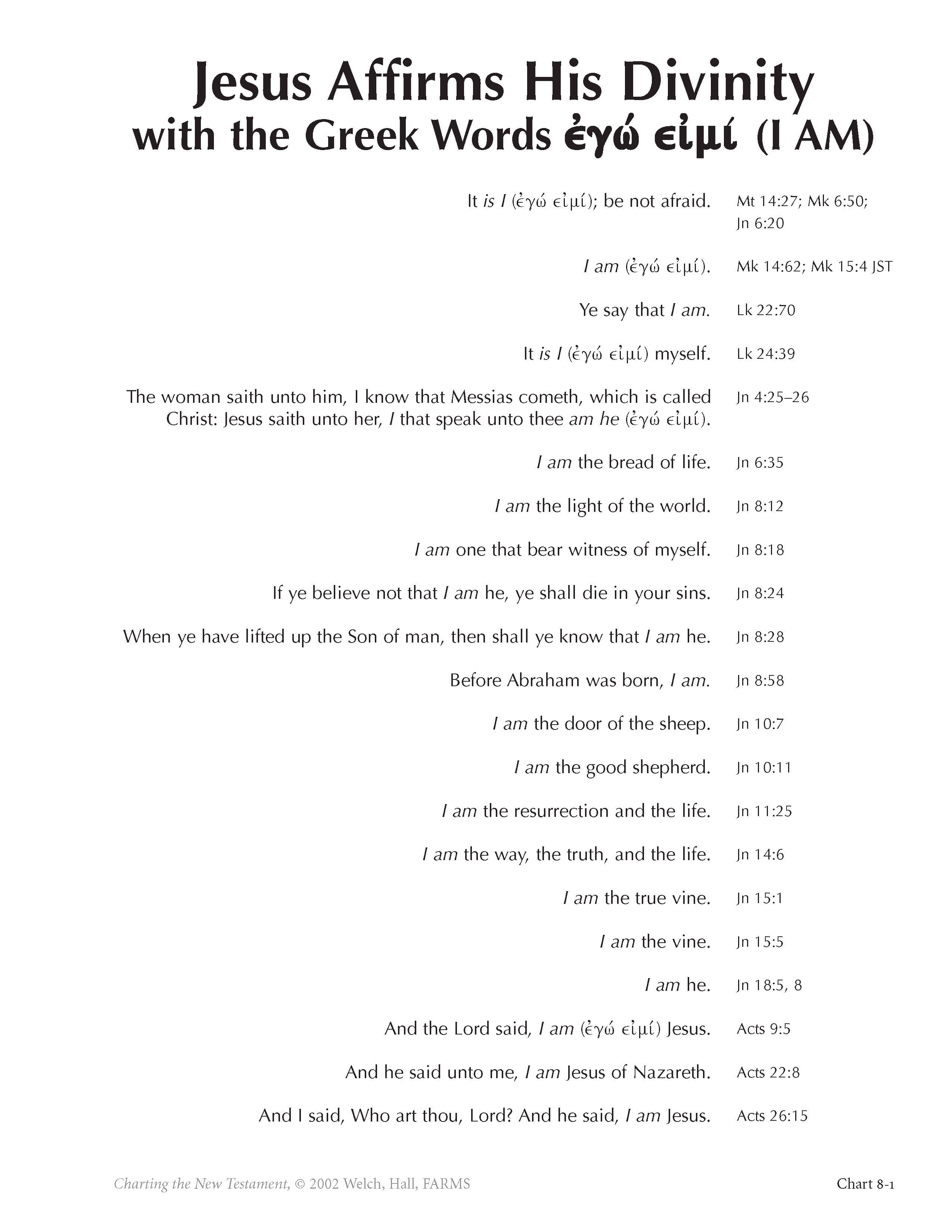
Share
Jesus Affirms His Divinity

Title
Jesus Affirms His Divinity
Publication Type
Chart
Year of Publication
2002
Authors
Welch, John W. (Primary), and Hall, John F. (Primary)
Number
8-1
Publisher
Foundation for Ancient Research and Mormon Studies
City
Provo, UT
Share
Abstract
An important feature of the Greek Gospels is the use of the Greek words ejgwv eijmiv, ego eimi, “I am.” These words are used predominantly in John, but they also occur at significant moments in Matthew, Mark, and Luke as well.
When Moses asked God on Mount Sinai, “When they shall say to me,What is his name? What shall I say unto them?”, the answer was “I am that I am” (Ex 3:13–14). The Greek version of the Old Testament, widely used in Jesus’ day, rendered this text “ejgwv eijmiv oj [Wn.” A similar divine usage is found several places in the Hebrew Bible and in Jewish messianic literature. Thus, when Jesus repeatedly identified himself with these words, his audiences could well have understood that he was affirming his divine identity as the Lord God of Israel.
This chart lists the passages in the Greek that contain the words ejgwv eijmiv, most of which are in the Gospel of John. Interestingly, Matthew,Mark, and John record this phrase in connection with Jesus’ miraculous walking on the water and stilling the storm. Mark emphasizes these words in the pointed answer of Jesus to his accusers who had asked, “Are you the Messiah” (Mk 14:61), just as John preserves them in the open declaration of Jesus to the Samaritan woman at the well. Luke reserves it exclusively for Jesus’ final announcement when he appeared to his apostles after his resurrection and Paul consistently testifies that Jesus identified himself this way on the road to Damascus.

Subject Keywords
Jesus Christ
Study Helps
Language - Greek
Bibliographic Citation
Terms of use
Items in the BMC Archive are made publicly available for non-commercial, private use. Inclusion within the BMC Archive does not imply endorsement. Items do not represent the official views of The Church of Jesus Christ of Latter-day Saints or of Book of Mormon Central.